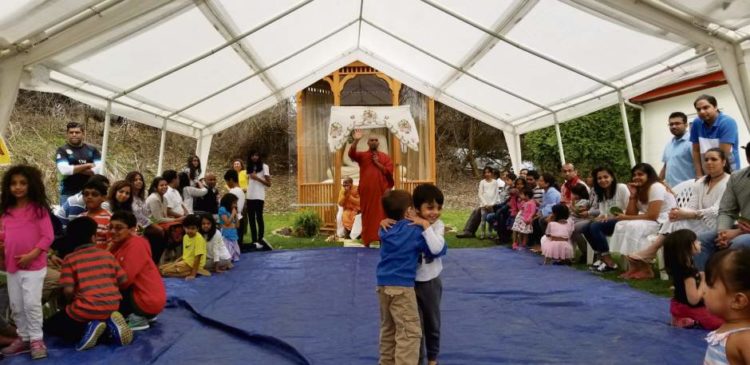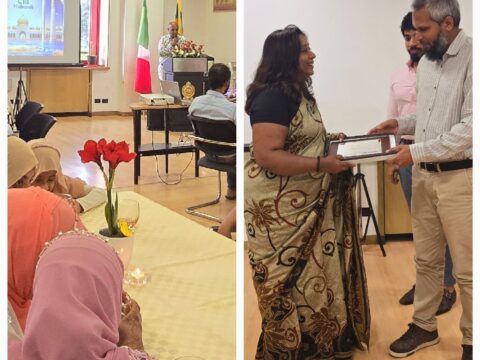HARRISON, Pennsylvania: The children of the Alle-Kiski Valley’s Sri Lankan community knelt before their parents to ask forgiveness for the past year’s transgressions, followed by messages of love and the sharing of a single betel leaf.
Parents turned to one another to do the same.
The ritual is part of Aluth Avurudda, or the Sri Lankan New Year, celebrated this year by about 100 people at the Pittsburgh Buddhist Center in Harrison.
The Sri Lankan New Year, also known as the Sinhalese New Year, follows a lunisolar calendar in keeping with traditional Sinhalese astrology, said Bhante Pemaratana, the center’s spiritual leader. The new year begins as the sun moves from Meena Rashiya, or the house of Pisces, to Mesha Rashiya, or the house of Aries, Pemaratana said.
Damitha Karunaratne, of State College, is one of the center’s founders and a native of Sri Lanka, an island country off the southern tip of India. He said that continuing to celebrate the culture of their homeland keeps the few dozen local Sri Lankan families together and rooted in the place from which they came, but it also serves to help bring outsiders in to experience their traditions.
“When we first come here, while you are getting adapted to a new place, you always want to keep your roots,” he said. “This is a way of teaching our children about our cultural traditions and values, but this is also a great asset to help others appreciate our culture.”
The Sri Lankan New Year traditionally marks the end of harvest season, according to Pemaratana, when families take the time to rest and celebrate after a successful year of farming. It is also a time to reflect on our position within nature and the natural world, he said.
More than anything though, the holiday focuses on forgiveness and family relationships, Pemaratana said, and in Sri Lanka, revelry can carry on for four or five days.
“We have no Father’s Day, or Mother’s Day, so all of that together with a special custom of asking forgiveness is the New Year,” he said.
The day includes a ceremony where participants are anointed with herb-infused oil, something that Pemaratana said is supposed to bring good luck for the following year.
The Pittsburgh Buddhist Center, located off of Route 908, opened in 2006 and has close to 400 listed members, Karunaratne said. He said the focus of the place is not necessarily entirely religious, but more about spiritual philosophy, meaning that members of all faiths are welcome and can be comfortable there.
“All religions can participate here without any kind of fear,” he said. (Tribune-Review)




